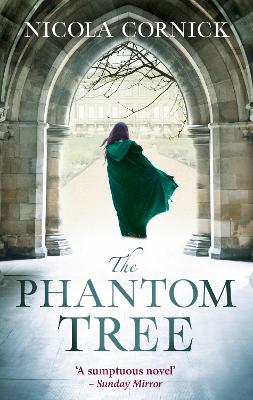Reviewed by Amber (The Literary Phoenix) on
I went into The Phantom Tree expecting something more akin to Philippa Gregory's writing - a court of Tudor intrigue, incredible characters and a respectable amount of villainy. While there is nothing particularly wrong with The Phantom Tree, it is first and foremost a romance.
As far as romances go, it was interesting enough. Predictable, of course. We have Alison's love story in the present that announces itself early on, where Mary's story starts when she is a child and we aren't introduced into to her love until the last part of the book. That romance is fast and fierce. I think people who enjoy romance stories, and historical romance especially, will enjoy The Phantom Tree. We have rediscovered love, fated love, horrible twisted love... good decisions and bad decisions and everything driven by passions.
I hate some issues with the continuity of Alison's character - I had a difficult time putting together the Alison of the 1500s with the Alison of the 2000s. They felt like entirely different characters to me. Additionally, the story line about searching for Alison's son seemed to lose steam somewhere in the middle. Even though the characters follow through on the storyline, their heart really isn't in it. That isn't to say there isn't a story - it really is all about the romance - but the advertised storyline is not the one we follow.
The Phantom Tree will appeal to romance lovers, people who love a light historical mystery. The time travel aspect is light and weak, so don't jump in looking for any heavy science-fiction or history. It was quite good for what it was, though.
Reading updates
- Started reading
- 5 April, 2018: Finished reading
- 5 April, 2018: Reviewed
